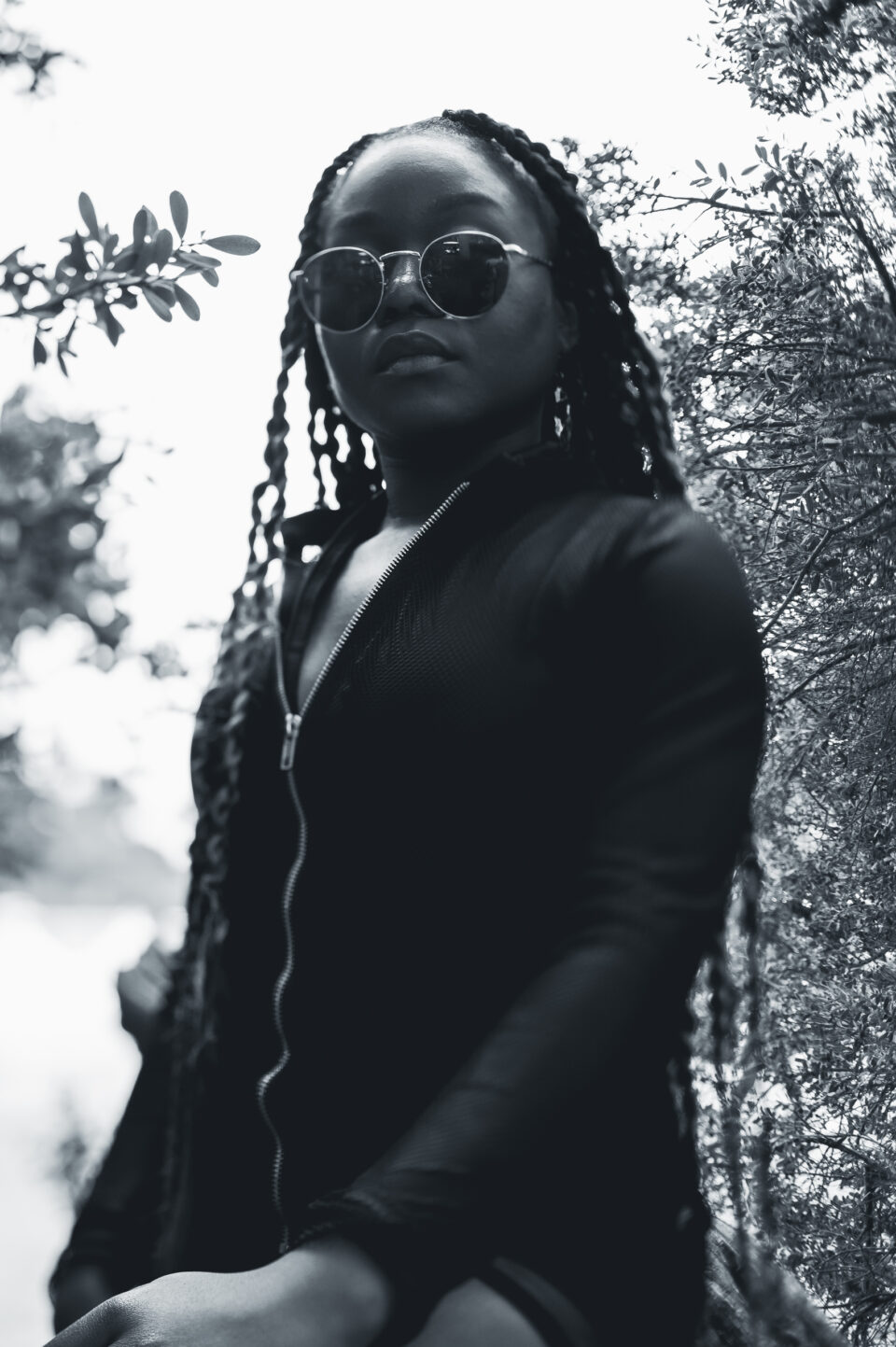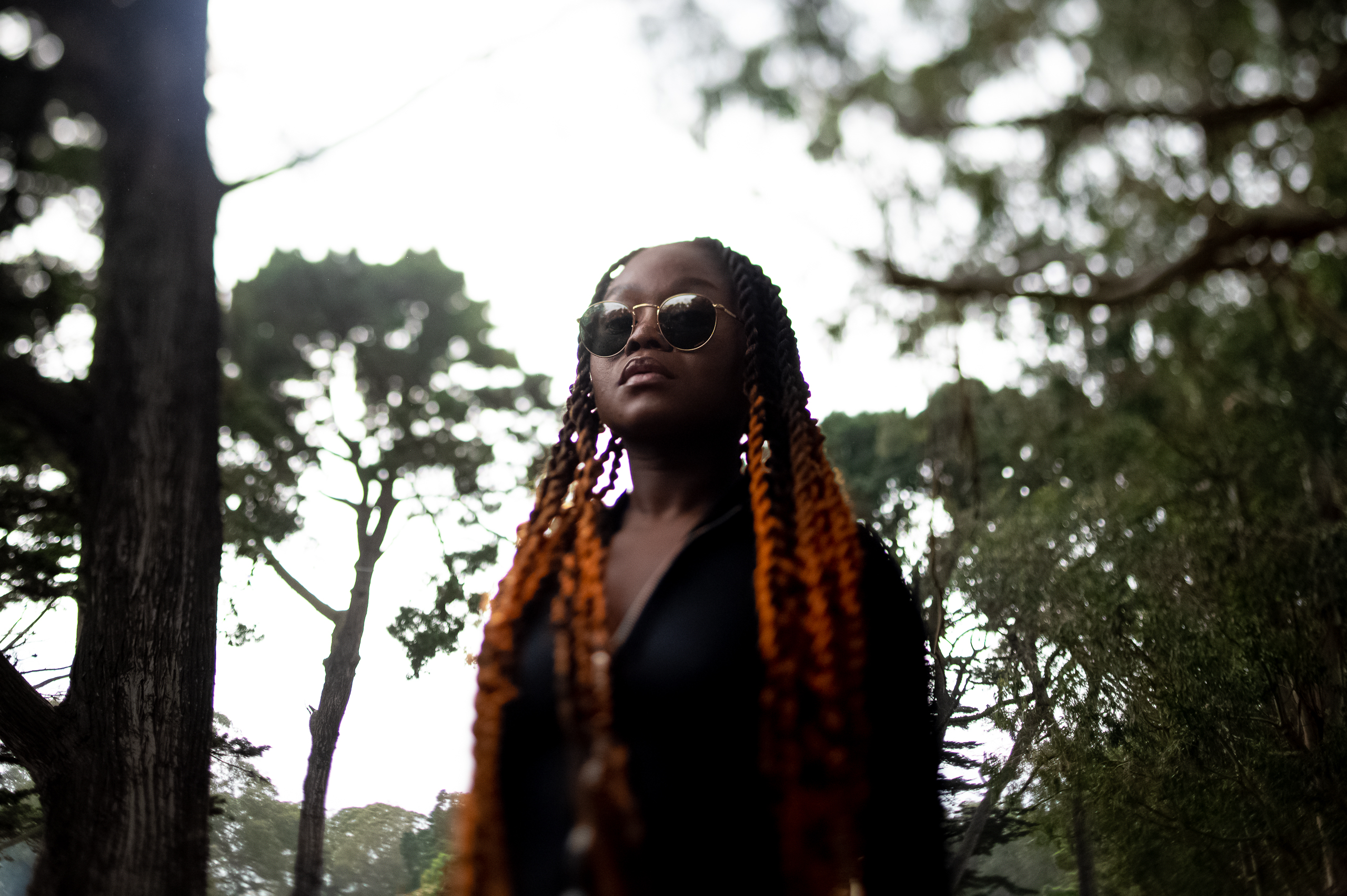The making of Sampa the Great’s sophomore album As Above, So Below began with a homecoming. After attending university in Australia, the Zambian-born and Botswana-raised musician soon caught recognition for her steely lyric delivery communicating personal adversity and visions of the path toward greatness—hence her moniker—with 2017’s Birds and the BEE9 mixtape and 2019’s debut album The Return. Although she gained worldwide recognition establishing herself as a songwriter, rapper, and poet while away from home, there was always an intention to return. After tours shuttered due to the pandemic, she moved back to Zambia and eventually started her latest album, which proved to be much more interwoven with remarkable revelations about herself and her family history than anticipated.
As Above, So Below is a potent emotional journey that reconnects her with her younger self and introduces her to a variety of musical collaborators that span generational greatness, including Denzel Curry, Angélique Kidjo, and Joey Bada$$. Most notably, Sampa learned about a Zambian music genre called zamrock, a psych-rock inspired renaissance that happened in the ’70s that had been mostly lost to time. For the album, she connected with producer Magg44, who in turn connected her with Jagari Chanda, founding member of legendary zamrock group WITCH—only to learn that her uncle was also a founding member of the band. In regard to an album that reconciles her personal and artistic history in relation to her country’s, these remarkable meetings feel like cosmic confirmation.
We chatted with the visionary artist about creating a new genre with past and present sounds, a confident, forward-looking alter ego named Eve, and how her understanding of greatness has evolved over time.
It seems like there’s a lot of reflection on this album, which you made in a two-week period. To have it made in the studio within that short span of time is kind of incredible. Was it all mapped out and written before?
We were all enjoying the process of making music together. I was working with people who I was inspired by and saw growing up and was like, “I love the way they express in music or show the way people in our country can make music and show what we can do globally.” And the fact that I was doing it at home, the first project that I’ve ever done in my own country, it felt less like us trying to recreate music that I heard growing up and more like us knowing the music that we all grew up on, expanding on it, experimenting on it, and making something new, which made it really exciting.
“The fact that I was doing it at home, it felt less like us trying to recreate music that I heard growing up and more like us knowing the music that we all grew up on, expanding on it, experimenting on it, and making something new, which made it really exciting.”
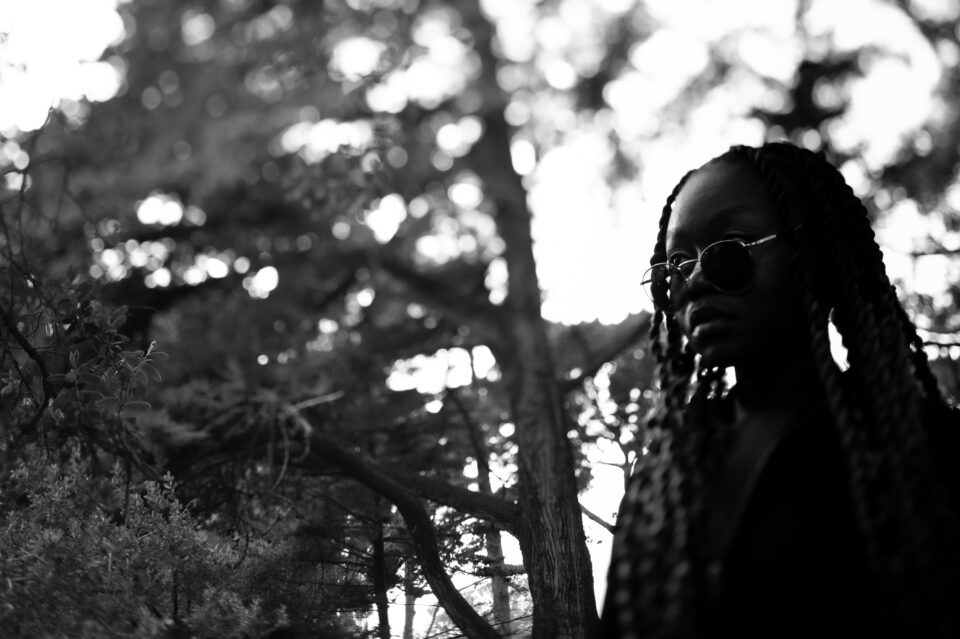
What was it like meeting people who’ve inspired not only you, but previous generations?
It was the awkward, “Wow, you’re amazing!” [laughs.] It was beautiful. I mean, I was learning about zamrock at the same time I actually met [Jagari Chanda]. It’s like reading a story about someone and seeing them there live and being like, “You’re exactly how the pages describe you.” It was very surreal. But not only to meet him, but also meet a family member who’s one of the founding members of the band he was in and see the connection that my family has had with music. For a long time I was under the impression that no one in my family wanted to pursue music professionally. I sort of felt like this lone wolf and very discouraged in trying to pursue this thing that’s considered a hobby, professionally. To know that a family member tried to do it before me is very encouraging.
But then to meet someone like Angélique Kidjo, who to me is a huge pioneer, and to remind her of the moment I met her first, which was at a festival in Australia like six years ago, walking up to her and giving her my vinyl and having her sign it, to now her DMing me…it’s so strange. It’s wild how that 360 sort of situation works.
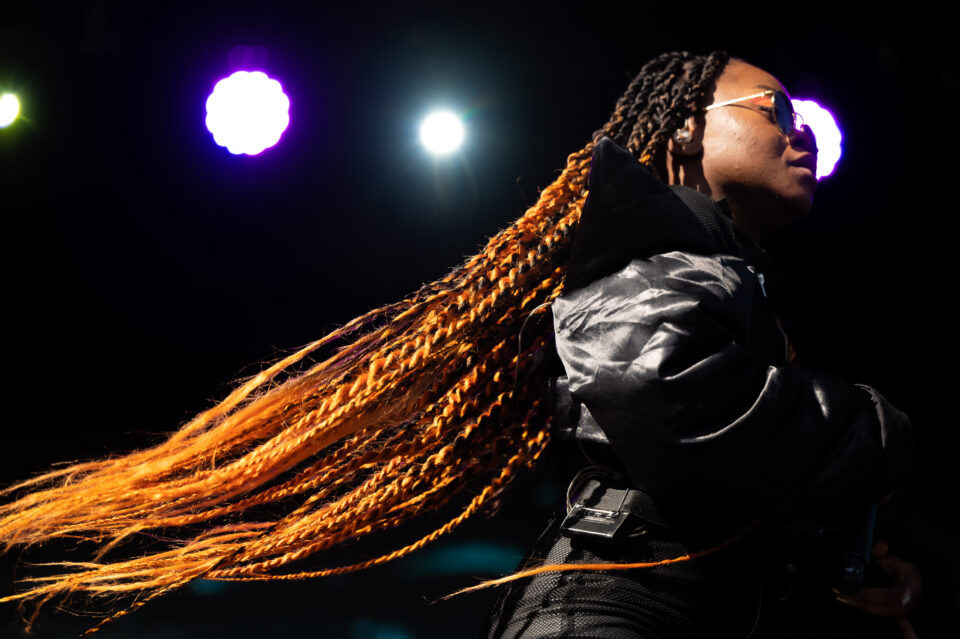
Sampa the Great
Why was it important to honor zamrock in your music?
Being able to come back home and make music, there were always questions of what Zambian music is and what it can be—how we can expand it, if there was ever a time that there was a definite sound for Zambian music—and that was zamrock. It felt very opportune to be like, “Thank you so much for paving the way and being courageous and passionate enough to bring this mix of genre in a very conservative country, especially at that time, sparking something in the younger generation,” and paying homage to that and knowing that we’re sort of doing that same thing, in a sense redefining what Zambian music is and expanding what African music can be by putting all our inspirations into one bowl and having that come from this country. You’re passing the baton on to us, because we’re not even the first to do it, like my uncle said. We understand that it’s been done before, and we want to take it further.
“We were like, ‘This is not a genre that exists, this is a new one.’ We really felt like we’d created a mesh of something new and beautiful. And in doing so, expanded what it means to make Zambian music.”
I’d love to hear more about exactly what “hybrid music” is. Was it something that existed before this album?
We made it up [laughs]. It came from me being very eclectic. You always want to enter a partnership with a producer where you let them know of the things you’ve been inspired by so they sort of have an idea of the headspace you’re in musically. For me, it was a lot. It became this inside joke where we were just blending all our inspirations into one to the point where when we started making the songs and after they were created, we would look at each other and ask, “What genre is this?” We didn’t have an answer. By the fourth or fifth song we were like, “This is not a genre that exists, this is a new one.” We really felt like we’d created a mesh of something new and beautiful. And in doing so, expanded what it means to make Zambian music.
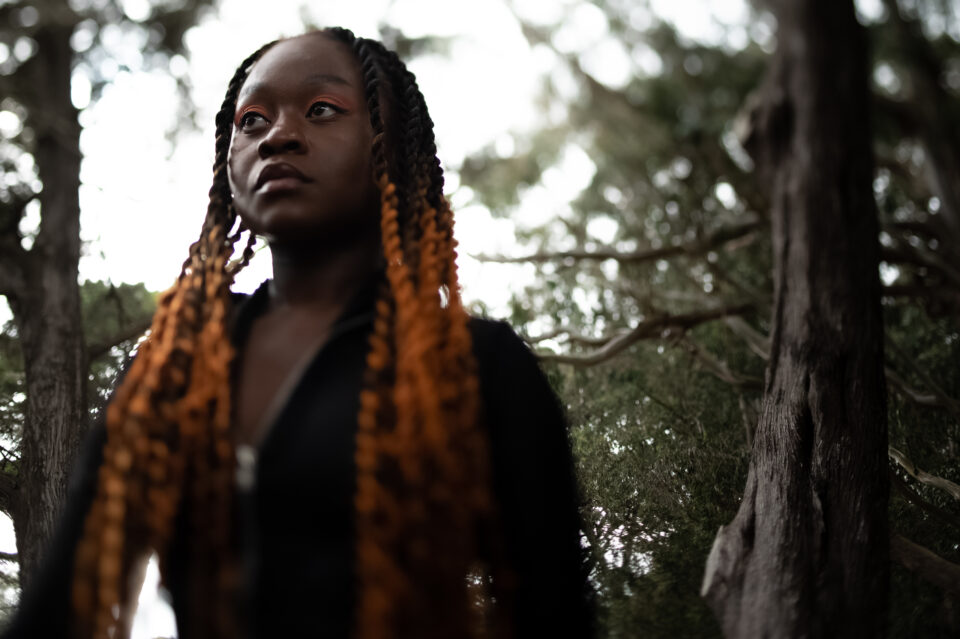
Do you still think that’s a fitting label?
Hybrid? Yeah. Especially when you go through this journey of trying to be definitive with identity—starting as a Zambian artist in Australia and to constantly be like, “I’m Zambian” and then have to defend that Zambianess to the point where you feel like you have to prove it through your music or through your language in your music. It gets to a point where you realize, “Actually, this doesn’t have a name, it’s something completely new.”
Another aspect of this musical chapter for you is the part of you that you’ve named Eve, which you’ve described as a mentality rather than a persona. It’s interesting that you’re nodding to the first woman and then also her representing someone who powers through adversity.
That’s very complex, and I didn’t actually [intend to] reference anything Biblical. One explanation of my Eve connection is that I’m pursuing a career path that isn’t usual or average for an African woman. Being a woman rapper isn’t something that’s said at the dinner table. It’s not something that people pursue. Already, I’m breaking a generational stereotype of what an African woman is supposed to be.
Then another layer of it would be the version of myself that I’ve always wanted to be. I want to be more confident in myself. I want to own my sensuality. What’s stopping me from manifesting that in the present? What’s stopping me from working on that and this not being some idealistic goal and just be who I am right now? It became a thing for me to the point where I called this part of my project my “Eve mode.” In this project, I’m going to express myself, whether it’s physically or figuratively, as that version of that woman that I’ve always wanted to be.
“Being the happiest version of myself, to me, now, matters more than having an achievement that would be considered great. The standard of what greatness is, to me, has definitely shifted a lot through life experiences.”
I’m interested in hearing about how your definition of what greatness is has changed throughout the years.
What I’ve interpreted as greatness has probably changed over time, even just from [2015’s] The Great Mixtape to The Return. More importantly, during the pandemic, you got to see things as they were and you got to ask yourself questions like, “Who are you outside of this career? Outside of this industry that may not even be here tomorrow?” It became less about accolades, less about being able to achieve this thing, even just down to family or for community or even for my country. It became more about, “Do I actually love what I do? Am I the healthiest version of myself? Do I love who I am?” Those are my markers to being the greatest version of myself. Being the happiest version of myself, to me, now, matters more than having an achievement that would be considered great. The standard of what greatness is, to me, has definitely shifted a lot through life experiences.
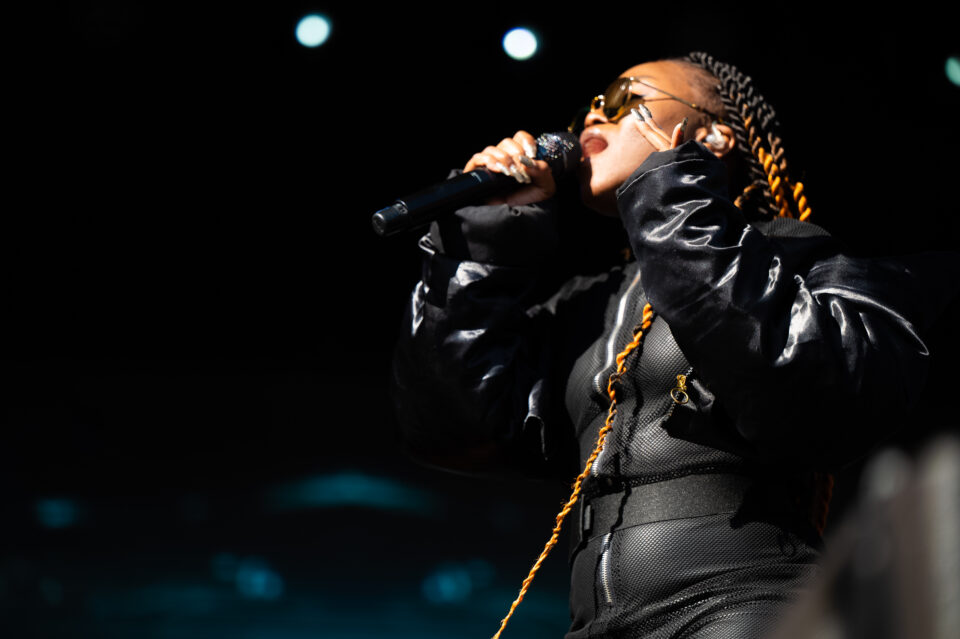
Sampa the Great
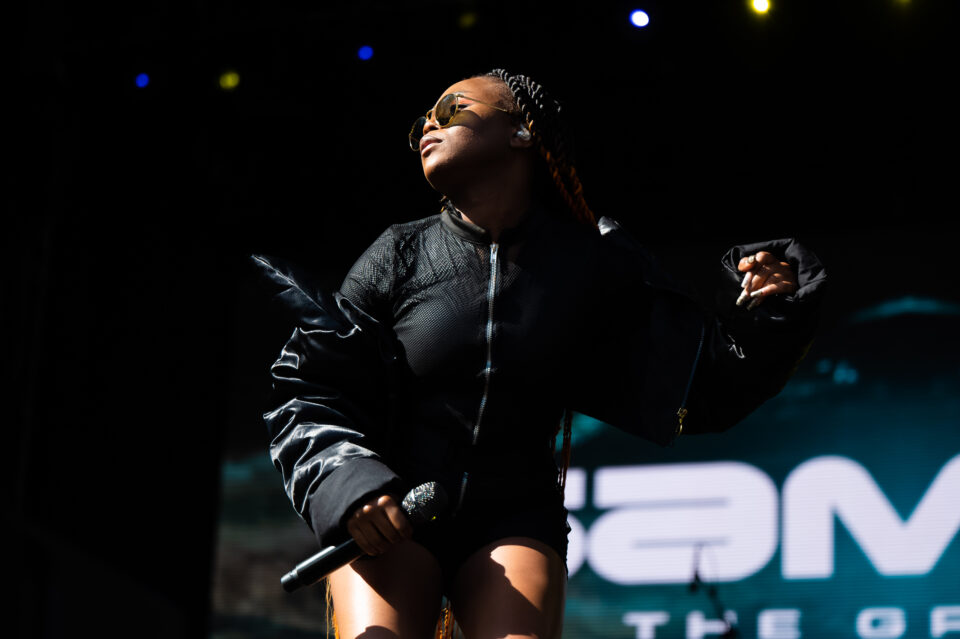
You’ve talked about how it’s been really stressful to represent something larger than yourself while also being yourself. Do you feel like it’s gotten easier?
The context of who I was representing is what added to the pressure, especially having not actually been raised in Australia and knowing that there are nuances to being an African Australian versus an African in Australia. I know how to be a Zambian because I’ve been a Zambian my whole life, so there’s no pressure in being that. But obviously, again, a new pressure is now being in Zambia, creating a project with all these Zambians, and pushing it out into the world. And, yes, hoping it does well, but also just staying true to the fact that I actually had fun creating this project and I’m happy with this project.
What are you most proud of from this album?
The hope that the album gave to us—my executive producer and co-producers—to have music like this come from our country. You could see it in people’s faces after the album was done; we didn’t believe it came from us, but we’re just proud that we got to be the people to create it. FL
